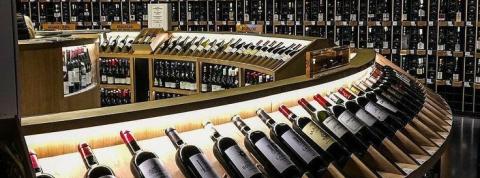
Wine tourism, the latest luxury
If there is one thing that governs our relationship with luxury, it is the notion of experience: immersive, educational, original or personalised, all the institutions linked to luxury are sensitive to it, especially tourism. So, after ecological innovations or technological prowess, it is now the wine châteaux that are diversifying their accommodation offer with the aim of showing people behind the scenes of the vine and the life of a wine estate. An approach that is seductive and continues to grow. Analysis of the latest fashionable luxury, wine tourism.
L’œnotourisme, une nouvelle forme de tourisme
Wine tourism, definition. Also known as enotourism and vinitourism, wine tourism brings together all the tourist activities (in all formats) organised with the aim of discovering a wine-producing region, a vineyard and also the know-how of the winegrower.
What is it all about? Wine and tasting, of course, but also the tourist actors gravitating around this activity. Restaurant owners, hoteliers, service providers... Wine tourism professionals are bringing together more and more skills and creating an unprecedented synergy around wine discovery.
On the other hand, wine tourism responds to a need for proximity and discovery of heritage on the part of customers. In fact, over the last ten years or so, the public's expectations have changed and the offer has been structured around the growing concept of "slow tourism" which favours encounters, ecology and the pleasures of the table. Today, wine tourism therefore represents 360 degree experiences where clients immerse themselves in the discovery of the terroir. Learning about the vegetative cycle, cultivation methods, but also tasting of old vintages, picnics in the vineyards, initiation to ploughing on horseback and even a hot air balloon flight over the vineyards. The aim is to transmit and reinvent a sector without denying its traditions.
An innovative version where luxury is hidden in the smallest details. Indeed, in addition to a great cultural openness and a return to the roots, it is also top-of-the-range stays that are proposed, where comfort and sophistication rub shoulders with authenticity and sharing. Relais châteaux, high-end spa, personalisation and 5-star service, it's all about combining passion and discovery with a choice stay for luxury wine tourism.
Who practices wine tourism?
It is clear that the majority of wine tourism enthusiasts are tourists and foreigners. This is a clientele with high purchasing power and a high standard of living who want more than just a simple "visit and tasting". Between wine purchases, accommodation, meals, souvenirs and leisure activities, they want an original and luxurious experience. Indeed, although culture and information are very important, wine tourists are also looking for visual, tactile and sensory sensations associated with wines. The gastronomic aspect therefore also plays a role in these trips, particularly during food and wine tastings. The culinary diversity offered by the region visited is truly appreciated by visitors. This is ideal for owners and tourism professionals who can build loyalty and gather people around their region, their brand and their estate.
Wine tourism in France
As the leading destination for wine tourism, each year nearly 10 million tourists come to discover French vineyards, representing a total expenditure of 5.2 billion euros. With 5,000 wine cellars open throughout France, wine tourism is booming and even changing. Among the most developed regions in this field are Burgundy, Bordeaux and Alsace.
If you wish to join this recruiting sector and become a professional in the field of oenology by combining knowledge related to luxury, Sup de Luxe offers the MSc Food & Wine International Management. A degree course designed to enable students to understand and master the specific world of the wine and spirits sector. Highly sought after by recruiters, this degree will give you the keys to a promising market.
L’œnotourisme dans le monde
Representing more than 50 billion euros of revenue in the world economy, wine tourism is a powerful and competitive market. And while France has taken this decisive step, wine estates around the world are also positioning themselves in this sector: Italy, Spain, Australia, South Africa and even Chile. On average, a wine estate increases its turnover by 20% by offering wine tourism services. This is not only a way to make money, but also a perfect way of boosting its storytelling and building customer loyalty through unique and original stays where each protagonist competes with others to bring his vineyard and his name to life and share it.